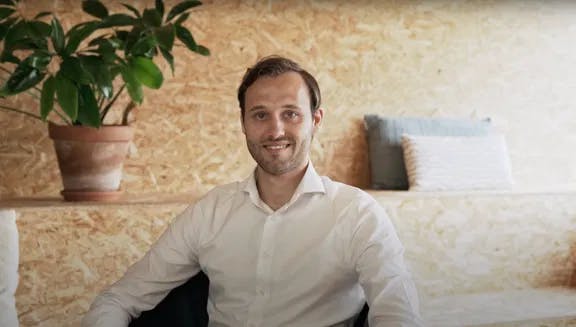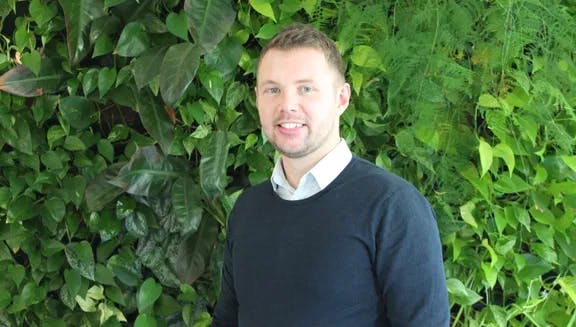#FoundersFridays: Meet Alvise Sembenico

#FoundersFridays is a StartupAmsterdam interview series: for entrepreneurs, by entrepreneurs. Each hero answers questions on their entrepreneurial journey, their learnings, milestones and bottlenecks, as well as on Amsterdam and the Dutch startup scene. It’s a platform for entrepreneurs to speak their minds freely and pass on their learnings to anyone who’s thinking about founding a startup as well.
This week we spoke to Alvise Sembenico, co-founder of Intrical AI. Intrical’s platform offers an accurate and up-to-date overview of a company’s profile. Combining expertise in AI, software development and business development, the startup’s team provides tailor-made, data-driven and fast-turnaround solutions for businesses.
How did your career journey lead to founding Intrical AI?
There were a number of different factors. First and foremost, I’ve always had an interest in running my own business – trying, failing and succeeding, finding out the right way. Secondly, AI is an extremely new field, yet it has already drastically changed some markets. This allows people to experiment to find innovative solutions, and at the same time it poses some challenges.
Personally, I was lucky to come across the AI Startup Lab, right next to the university. As soon as I heard about it, I thought what an amazing opportunity it is to run a small business in a sandbox. Fortunately, our ideas turned out to be interesting to our clients, so we founded Intrical.

Why did you choose Amsterdam to start and grow your business?
I had some experience in setting up a small business in Italy, where I also participated in similar initiatives to Amsterdam’s AI Startup Lab: the Italian Startup-Lab and the Innovation Olympics at the University of Trento. However, as soon as I arrived in Amsterdam, I noticed the environment and ecosystem here are altogether different. The AI expertise and the startup ecosystem are top-notch, making Amsterdam one of the best places to run a startup in the field.
What has been a recent ‘win’ for your business?
Our collaboration with ABN-AMRO has been a huge win for us, not only because it allowed us to further develop the product, but also because it means we can work closely with the corporate finance department of an important financial institution – an opportunity you certainly don’t come across every day.
Can you name a recent challenge your business has faced and what you have learned from it?
Artificial intelligence needs a large amount of data to learn, be useful, and eventually add value to an organisation or industry. Unfortunately, most of the time the data is simply not available or in some cases it exists but is not accessible in an affordable way.
Without access to the actual data, most problems can’t be solved completely. However, we can find parallel ways of achieving similar results or invest time and effort in the problems that can be solved with the existing data. Finding these ways is a daily challenge that sometimes keeps us up at night.
What’s the most valuable piece of advice you’ve been given?
To gain a really clear understanding of the problems and needs of our customers. This is something we recognised on a theoretical level, but at the beginning we didn’t fully realise all the practical implications. This led to us making mistakes and meant we had to learn our lesson as we went along. We now put all our efforts into understanding our customers’ entire workflows in detail, so that we can help them with exactly those processes that empower them the most. In a way, there is an interesting parallel between us and AI: both of us work at our best when we have a deep understanding of the users and their needs.
Related articles

#FoundersFridays: Meet Zsofia Kollar

#FoundersFridays: Meet Svetlana Kordumova

#FoundersFridays: Meet Bibi Schmidt

#FoundersFridays: Meet Joris Oudejans

#FoundersFridays: Meet Ahmed Mamdouh Khalil

#FoundersFridays: Meet Niels Baay

#FoundersFridays: Meet Michael Musandu

#FoundersFridays: Meet Adil Ayi

#FoundersFridays: Meet Nikolay Tsanev
